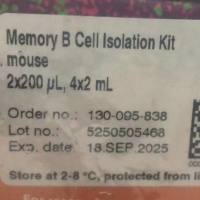Measuring Effects of Psychostimulants on Egocentric Spatial Learning and Memory in Adult Zebrafish
互联网
互联网
相关产品推荐

VEGF-A重组蛋白|Recombinant Danio rerio (zebrafish) VEGF / VEGFA / VEGF165 Protein
¥780

美天旎Miltenyi货号130-095-838小鼠记忆B细胞分离试剂盒(Memory B Cell Isolation Kit,mouse)上海睿安生物13611631389
¥11380.23

OFET微型探针,Measuring Adaptor for Back-Gated OFET Interdigitated Substrates,阿拉丁
¥21440.90

FIBIN/FIBIN蛋白Recombinant Human Fin bud initiation factor homolog (FIBIN)重组蛋白Fibin; FIBIN_HUMAN; Fin bud initiation factor homolog (zebrafish) ; Fin bud initiation factor homolog; MGC24932; PSEC0235蛋白
¥1344

Zebrafish PPP1R3G 多克隆抗体
¥420

